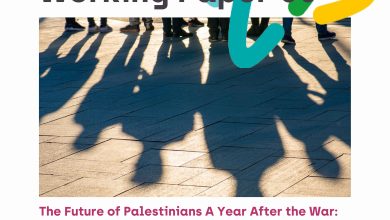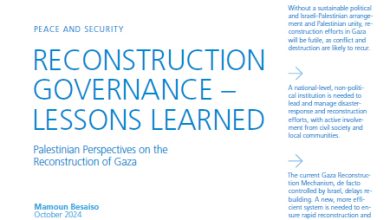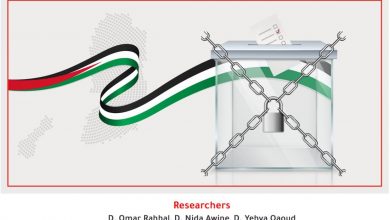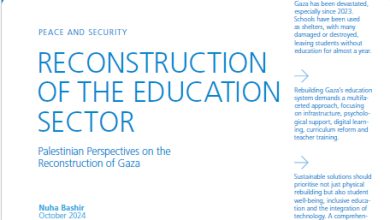Visions to Support the Palestinian National Reconciliation
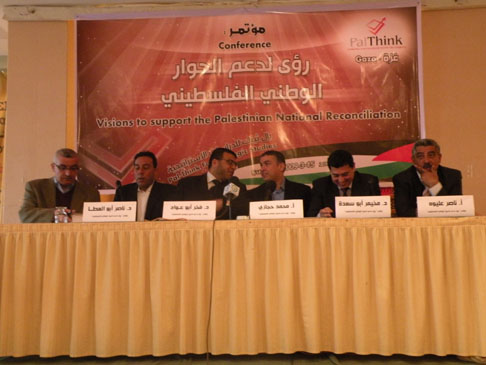
Following its utmost efforts to enhance the Palestinian reconciliation, Pal-think Institute for Strategic Studies organized a conference entitled “Visions to support the Palestinian National Reconciliation”. The aim of the conference , held on Sunday 15 March 2009 , was to enrich the ongoing Palestinian dialogue and to enhance the role of the civil society towards achieving a sustainable national reconciliation.
Pal-think has formed five committees in parallel with the 5 committees of negotiating issues held in Cairo to broaden the dialogue, debates, discussions and participation away from the factional frames to reach independent visions on all the stalled issues .
In his paper on the role of Government, researcher Mohammed Hijazi, put forward five ruling issues: the issue of the recent offensive on the Gaza Strip , the issue of division and reconciliation, the issue of what is happening in the West Bank , the issue of the burden of international ties/links and the Israel burden –with logistics issues.
He pointed out that these ruling issues must be neutralized or bypassed where a new criteria and basis must be found so that the upcoming government can tackle all relevant issues better.
He also warned that Israel, which encourages the division among Palestinians, with their different scenarios, will put more obstacles before the work of the government, especially the movement of the Prime minister, members of the government and different officials and missions of government in general.
Dr. Mukhaimer Abu Saeda, political science lecturer at Al-Azhar university, reported in his research paper: “The Election Committee” that reformulation of the Central Election Commission (CEC) is a national necessity to enhance unity and reconciliation.
He urged that the reformulation of the election committee must be renewed to represent all the Palestinian factions, political powers and some of the independent figures, including academics, jurists and representatives of the civil society to ensure the integrity of the upcoming elections.
Nasser Abu. Eleiwa, researcher of political affairs, stated in his research paper “Committee of the Palestinian Liberation Organization(PLO)” that the crisis of the PLO aggravated after signing Oslo accord which established the Palestinian Authority (PA), a matter which led to structural, programmatic and functional crisis as well as external crisis resulting from the internal crisis of the PLO factions.
Dr.Nasser Abu-Elata, lecturer of Political Sociology at Al-Aqsa university, said in his research paper “The Reconciliation committee” that ending division forms a necessity and a base to halt violence, the internal fighting and reunifying of all society powers based on national, democratic and liberal program as a condition for our people to steadfast in confronting the occupation and aggression and to achieve the national goals.
Dr. Fakhr Abu-Awwad, co-founder of the “Academy for Strategic and Security Studies (SSSA), said in his research paper ” The security issue in the internal Palestinian dialogue 2009″ that the agreement on the relation and correlation between security and resistance in the daily life must be achieved .
He mentioned that the role of the militias and weapons’ holders away from the official security apparatus must be specified. There should be a vision to the security system and its development where Palestinian parties can achieve community peace based on a comprehensive agreement in other dialogue issues.


